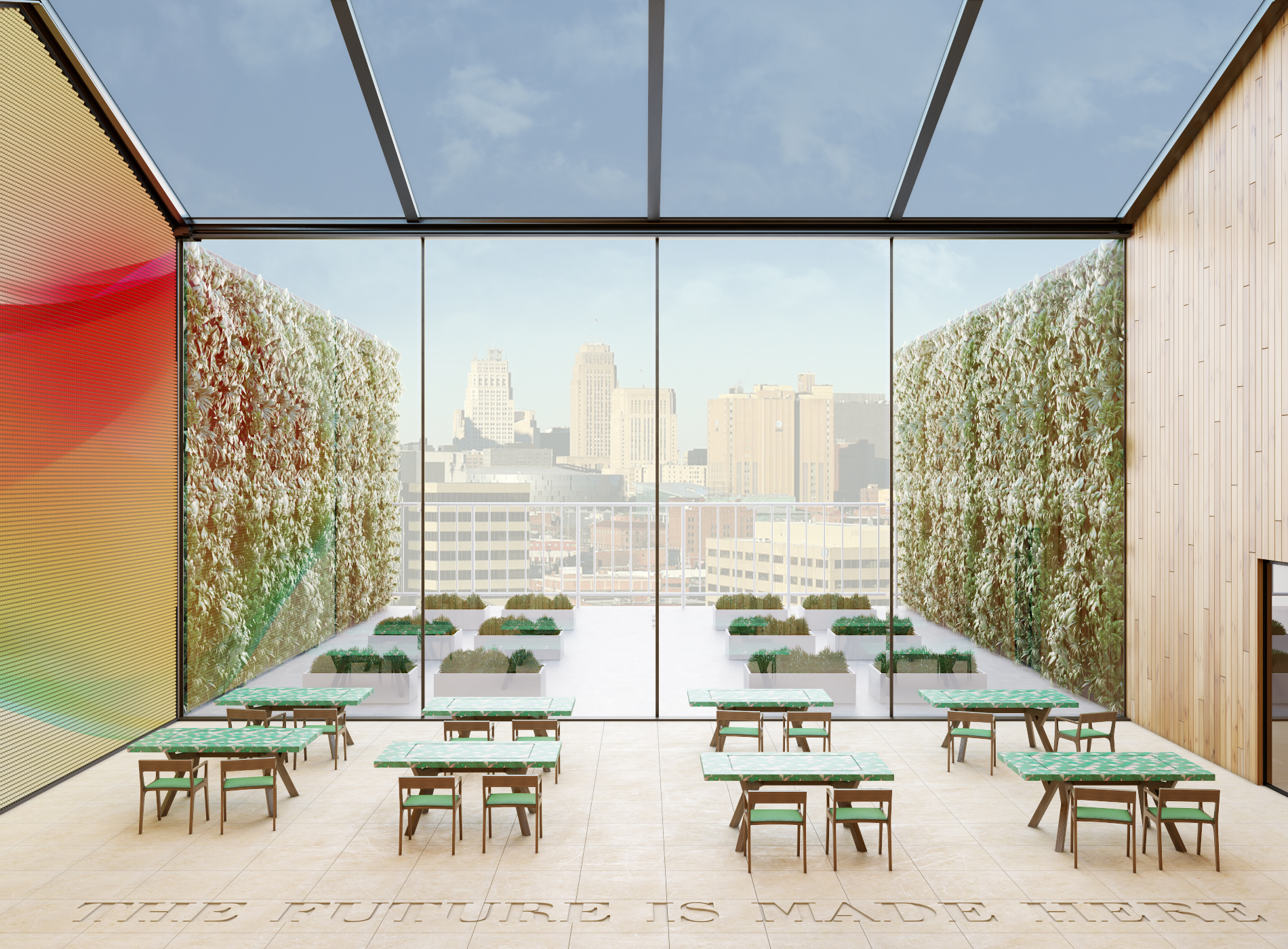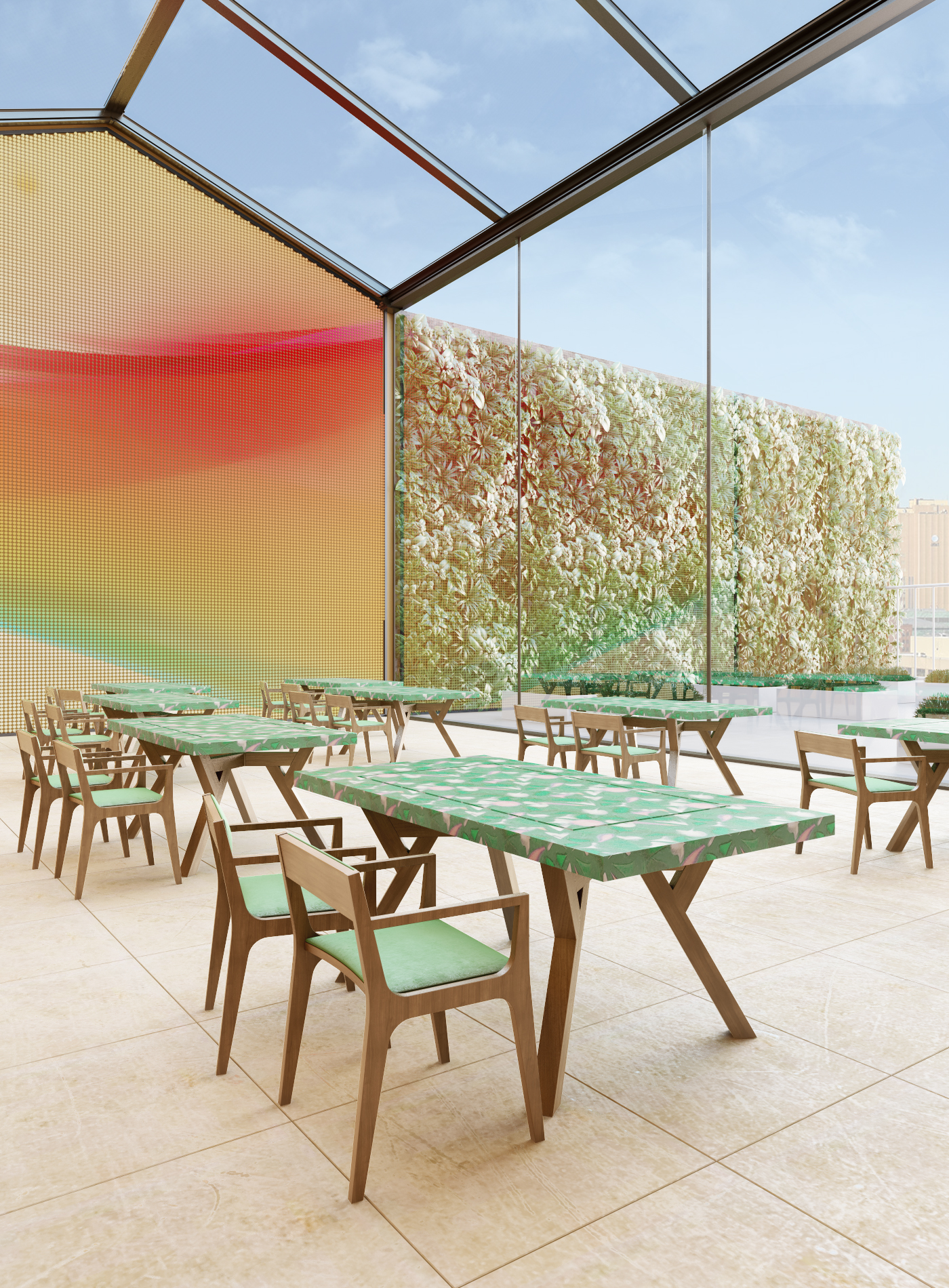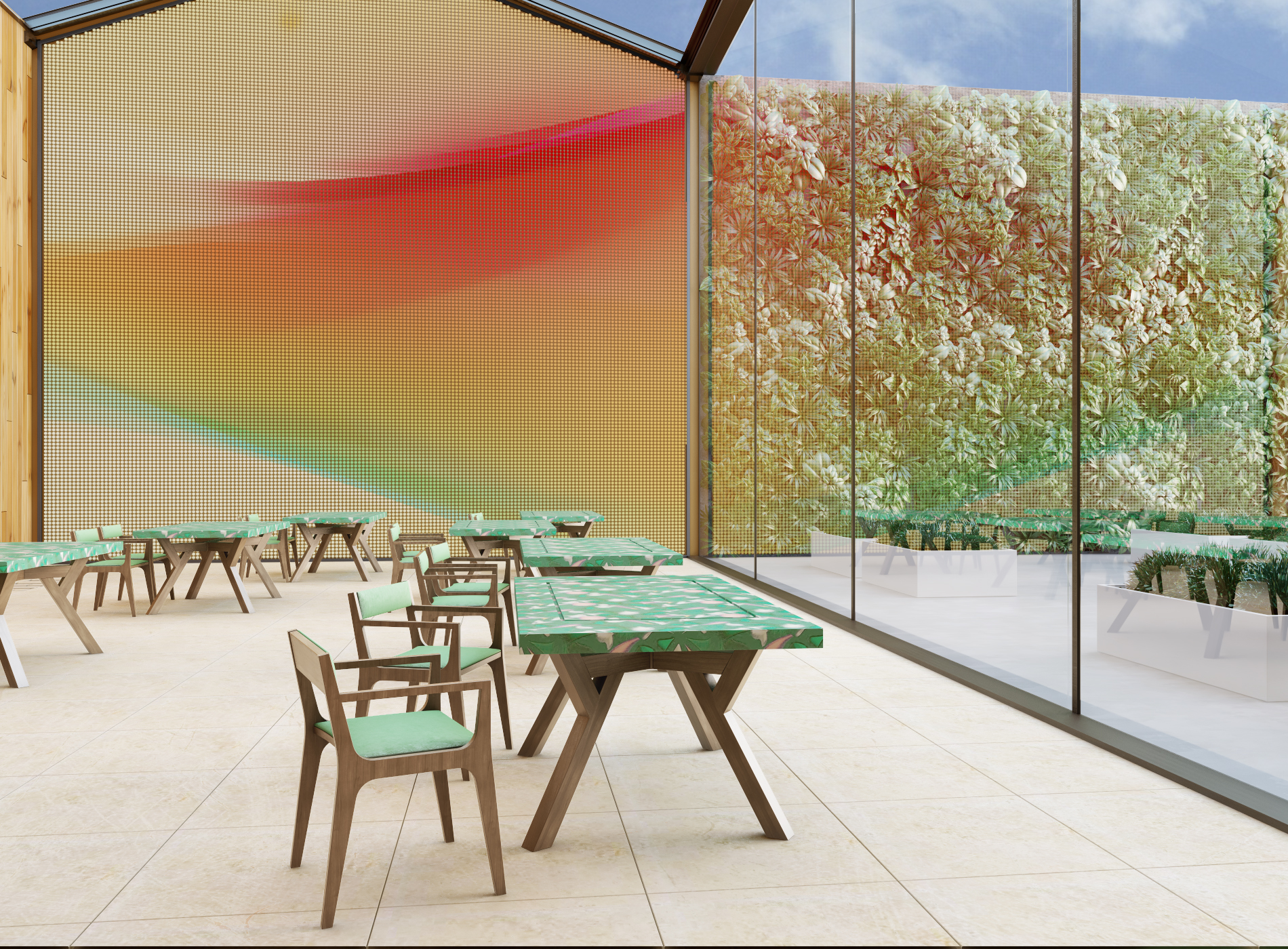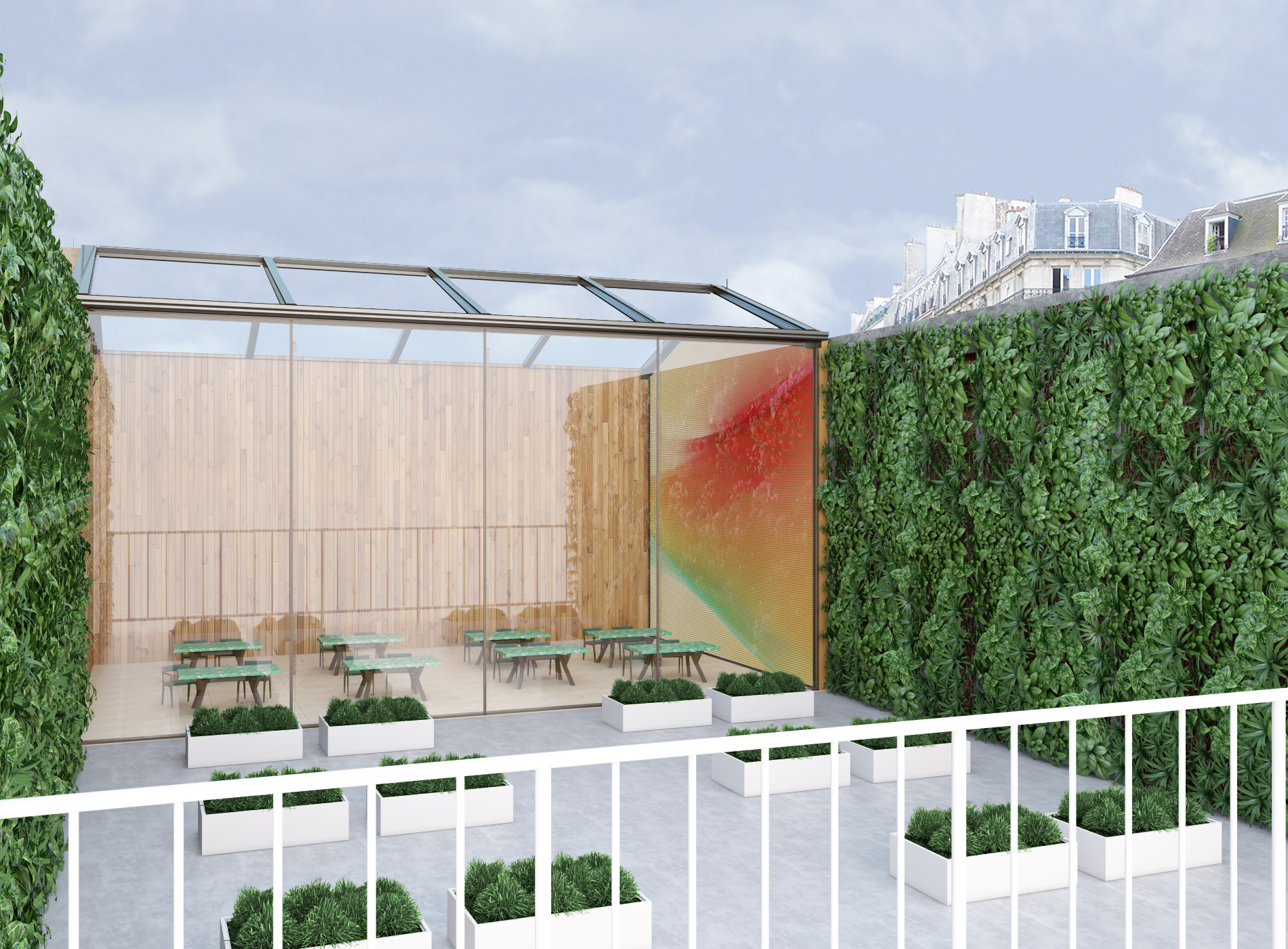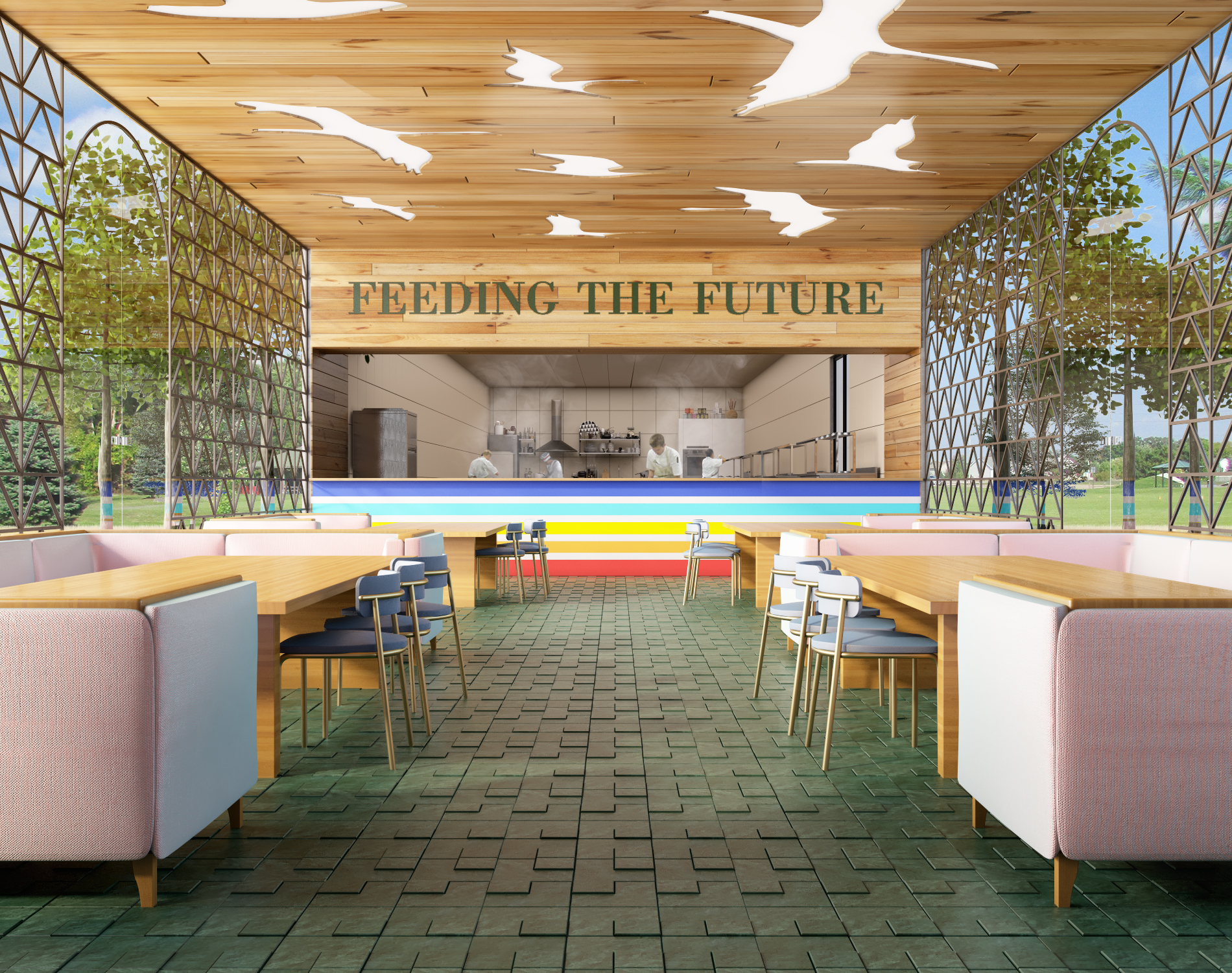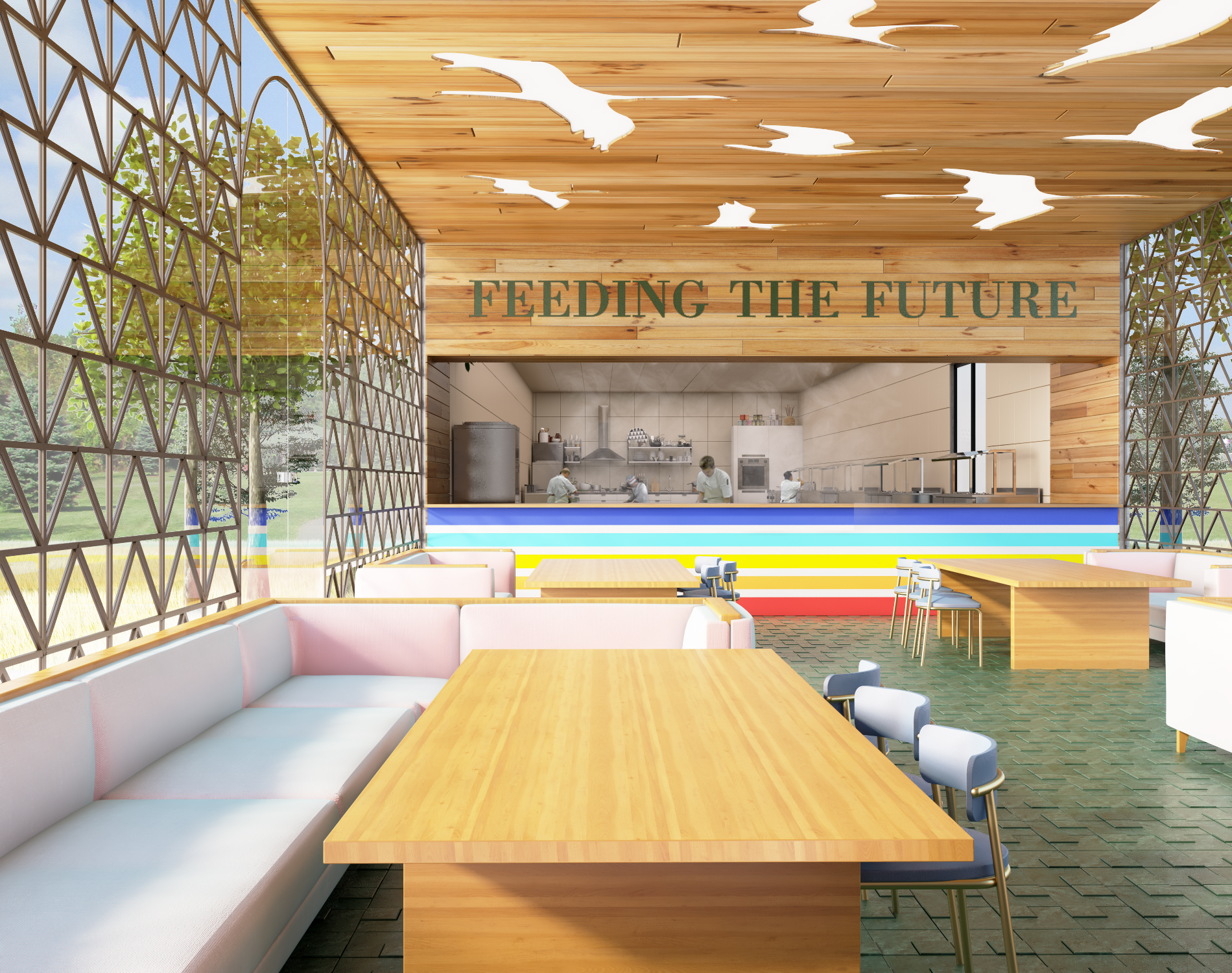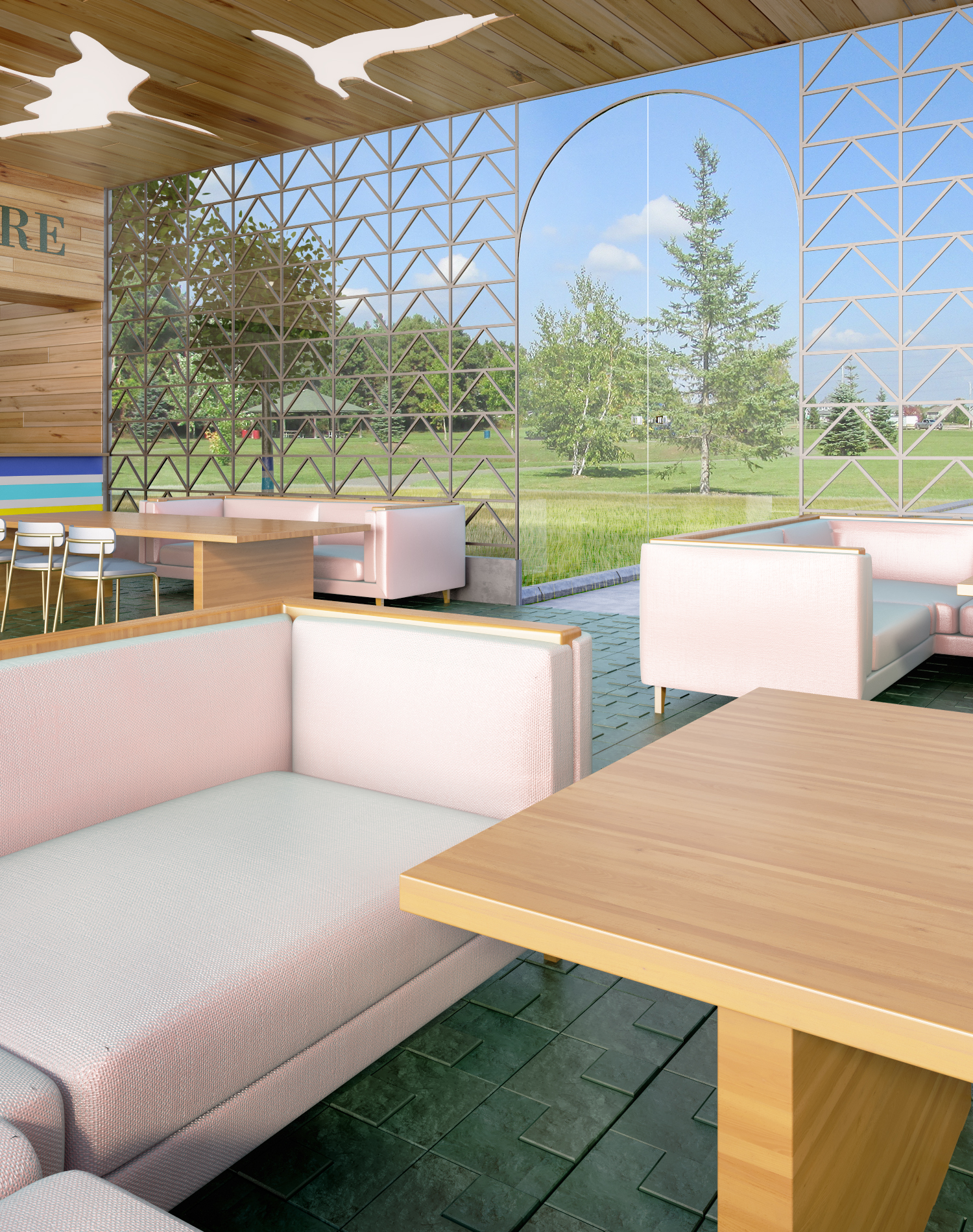Key Features
This classroom has a in built hydroponic vertical farm. At the start of the school year, students learn about Biology and innovations in Biology by studying the plants that they have planted themselves. It also becomes a creative and collaborative effort that allows them to learn from their own work whilst making the air in the classroom more pleasant. Each table has a digital panel that monitors their level of engagement, pleasure, resonance and retention throughout the lesson. Students are also required to submit a performance review to their teachers through this platform. This allows teachers to obtain meaningful data about the student and their teaching, allowing them to tailor their feedback accordingly. The 'walls of wonder' are to showcase chemical phenomena in the world, helping students to get closer to the concepts that are being taught. Often students find the Sciences hard because they cannot 'see things' nor do they understand the context in which the concepts exist (i.e: what does this mean in the real world outside of me passing my exams?). These barriers to learning often make one disinterested simply because of poor communication. The Occulus VR headset also allows students to test things without wasting resources. It allows students to ask 'what if' without fear of blowing up the laboratory or being limited by what 'equipment' is available.
School Restaurant
Teaching responsible consumption and the Pleasure of Self Nourishment
“Imagination is the source of every form of human achievement. And it’s the one thing that I believe we are systematically jeopardising in the way we educate our children and ourselves.”
Overview
Why did we design this concept?
Traditional institutions and the exam system inadequately prepare students to thrive in the world outside of University. The school syllabus doesn’t convey the true joy of a subject and it is easy to get caught up in the mindset of ‘exam passing’ as opposed to the fun of free thought, exploration and creativity. Students don’t get to learn about the awe inspiring ways in which they can combine Science with Art and vice versa (in a lot of cases, one subject is weighted more ‘favourably’ than another) and we get stuck looking at things in fixed compartments. Young people are also not taught how to leverage common tools, like social media to open up professional opportunities for themselves or how their actions are connected to the world at large. A study by the World Economic Forum has presented creativity as the 3rd most valuable skill in the working world from 2020, at present it is at number 10. The academic environment often cripples making mistakes, when the ability to learn from them is key to success not only in ones career but in life itself.
Who is this school for?
Future School is an independent school for young people of the most progressive parents. Parents that inherently believe that school is about cultivating joy in life, pleasure in learning and service to a wider community. It is a space lead by the most forward thinking educational leaders who guide students in embodying their authentic brilliance and finding a way to bring that to the world in a way that is true to them.
How does this concept improve learning?
“We have to go from what is essentially an industrial model of education, a manufacturing model, which is based on linearity and conformity and batching people. We have to move to a model that is based more on principles of agriculture. We have to recognize that human flourishing is not a mechanical process; it’s an organic process. And you cannot predict the outcome of human development. All you can do, like a farmer, is create the conditions under which they will begin to flourish.”
Future School is a project to re-imagine what a school would look like if it focussed on allowing young people to enjoy learning, cultivating personal fulfilment and prepared them for the changing economy. The focus of this concept is to revitalise education, making it interesting, fun and more directly relevant to the outside world. We also hope that this environment will help deepen a students relationship with the Sciences, themselves, their peers and the world as a whole. We want students to be excited to come to school and experience school as a safe environment in which to make mistakes, to explore and to be exposed to concepts that matter beyond examination but in the wider world.
Science Classroom
Inspiring Global Engagement
